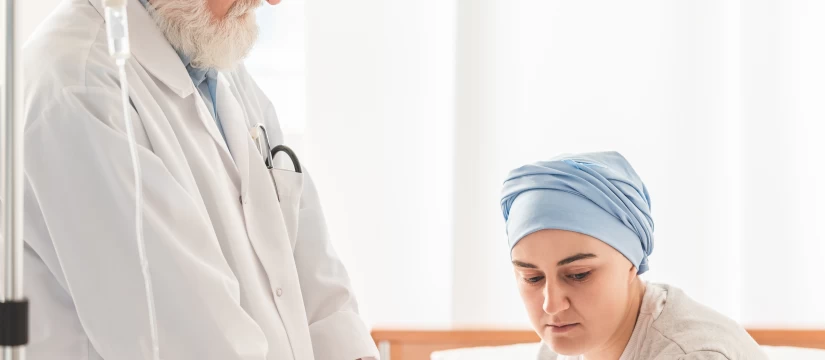How Long Does Oncology Recovery Take in Turkey? A Complete Timeline
Oncology recovery is a crucial stage in the cancer treatment journey. The recovery period varies greatly depending on the type of cancer, the treatments received, and the individual patient’s health. Turkey has become a preferred destination for oncology treatment due to its state-of-the-art medical facilities, highly skilled oncologists, and affordable care. Understanding the recovery process is vital for international patients seeking treatment and post-treatment care in Turkey.

In this article, we’ll explore how long oncology recovery generally takes in Turkey, the factors that influence recovery time, and what patients can expect during the recovery process.
1. Factors Influencing Oncology Recovery Time
Recovery from cancer treatment is not a one-size-fits-all process. Several factors affect how long recovery will take for each individual. Here are some of the most important factors that influence oncology recovery time in Turkey:
1.1 Type of Cancer and Stage
The type of cancer and its stage play a critical role in determining recovery time. Cancers that are detected early and are localized (i.e., they haven't spread to other parts of the body) generally have shorter recovery times compared to advanced cancers that require aggressive treatment.
- Early-Stage Cancers: Patients with early-stage cancers that can be treated with surgery, radiation therapy, or targeted chemotherapy may experience a shorter recovery period. For example, recovery from breast cancer or prostate cancer can take between 2-6 months depending on the treatment type and patient health.
- Advanced-Stage Cancers: More advanced cancers that require a combination of chemotherapy, radiation, and surgery can extend recovery times. For these cases, patients may experience longer recovery periods, ranging from 6 months to a year or more.
1.2 Type of Treatment Received
The kind of treatment a patient undergoes also affects how long recovery takes. Some treatments are more physically demanding and may require longer recovery, while others have shorter recovery periods.
- Surgery: Surgical recovery times depend on the complexity of the procedure. For example, a robotic-assisted surgery for a small tumor may require just 2-3 weeks of recovery, while a more invasive procedure (such as a mastectomy or colectomy) may take several weeks to months for full recovery.
- Chemotherapy: Chemotherapy recovery varies depending on the drugs used and the number of cycles. Chemotherapy typically leads to fatigue, nausea, and lowered immunity, which can affect recovery time. Patients often need 2-3 weeks of rest between cycles, and full recovery may take several months after completing the entire treatment.
- Radiation Therapy: Radiation therapy typically has fewer side effects than chemotherapy but can still affect the body. Depending on the treatment area, recovery from radiation can take anywhere from 2 to 6 months.
- Immunotherapy and Targeted Therapy: These newer treatments may also require time to show results and can have different recovery timelines. Immunotherapy may take several months to show its full impact, and recovery time can vary based on the patient’s response.
1.3 Patient’s Overall Health and Age
A patient’s age, general health, and ability to tolerate cancer treatments also affect recovery time. Older patients or those with other health conditions may require more time to recover after cancer treatment. Additionally, patients who have good physical fitness and strong immunity tend to recover more quickly than those who are more frail or weakened by the disease.
- Younger Patients: Generally, younger patients tend to recover faster from chemotherapy, surgery, and radiation treatments compared to older patients, who may require more time to regain strength.
- Co-existing Health Conditions: Patients with diabetes, heart disease, or respiratory issues may take longer to recover, as these conditions can complicate the recovery process.
1.4 Type of Support and Rehabilitation
Recovery is not just about physical healing—it also involves emotional support, nutritional care, and rehabilitation. Patients who have access to a comprehensive recovery plan, including physical therapy, psychological support, and nutrition counseling, may recover more quickly and manage side effects better.
- Rehabilitation: Hospitals in Turkey offer post-treatment rehabilitation programs that help cancer patients regain their strength and mobility after surgery or chemotherapy. Rehabilitation might include physical therapy, lymphedema management, and dietary counseling, all of which contribute to a faster recovery.
- Psychosocial Support: Emotional recovery is just as important as physical recovery. Many oncology centers in Turkey provide psychological counseling and support groups to help patients cope with the emotional effects of cancer treatment. The mental recovery period can vary, but emotional support can reduce stress and accelerate overall healing.
2. Typical Recovery Times for Various Cancer Treatments
Here’s a general breakdown of what to expect in terms of recovery time for specific cancer treatments in Turkey:
2.1 Surgery Recovery Time
- Minor Surgery (e.g., small tumor removal or laparoscopic procedures): Recovery can take 2-4 weeks.
- Major Surgery (e.g., mastectomy, prostatectomy, or colorectal surgeries): Recovery can range from 6 weeks to 6 months, depending on the procedure and patient’s overall health.
2.2 Chemotherapy Recovery Time
- Standard Chemotherapy Cycles: Each chemotherapy cycle usually lasts 3-4 weeks, with patients requiring 1-2 weeks of recovery between cycles. Full recovery from chemotherapy can take between 3-6 months after the last cycle, depending on the intensity of the drugs and number of cycles.
- Side Effects: Fatigue, nausea, and low immunity can affect recovery during treatment, and managing side effects might extend the recovery period.
2.3 Radiation Therapy Recovery Time
- Post-Radiation Care: Radiation recovery can vary depending on the treatment area. Patients typically experience skin irritation, fatigue, and internal inflammation for a few weeks following treatment. Full recovery from radiation therapy can take between 2 to 6 months.
- Targeted Radiation (e.g., CyberKnife or Proton Therapy): These treatments are less invasive and usually have a shorter recovery time, with most patients returning to normal activity in about 1-2 months.
2.4 Immunotherapy and Targeted Therapy Recovery Time
- Immunotherapy and targeted therapy work differently than chemotherapy and often have fewer side effects. Recovery times vary, but patients may experience some fatigue, muscle pain, or joint pain. Full recovery after immunotherapy may take between 3 to 6 months.
3. Recovery Support Services in Turkey
Turkey’s oncology centers provide holistic support services that aid in recovery and help patients regain their health, strength, and quality of life:
3.1 Psychological Support
- Hospitals offer access to psychologists or counselors who specialize in helping cancer patients manage the emotional effects of treatment and recovery. Patients are also encouraged to participate in support groups for both patients and their families.
3.2 Nutrition and Dietary Support
- Many hospitals in Turkey have nutritionists who design custom meal plans to support patients during recovery. Proper nutrition is essential for boosting the immune system, managing side effects, and helping the body heal.
3.3 Physical Rehabilitation
- For patients who undergo surgery or experience physical limitations after chemotherapy or radiation, physical therapy is often included as part of oncology recovery in Turkey. This therapy helps patients regain strength, mobility, and independence.
4. Why Choose Turkey for Oncology Recovery?
Turkey offers several advantages for patients seeking cancer treatment and recovery:
- High-Quality Care: Turkey’s oncology centers are equipped with state-of-the-art technology and staffed by internationally trained oncologists and specialists.
- Affordable Treatment: The cost of cancer treatment and recovery in Turkey is significantly lower than in countries like the United States or European nations. Patients can access world-class care at 30-60% lower costs.
- Comprehensive Recovery Services: Turkey’s hospitals provide a multidisciplinary approach to recovery, including physical therapy, emotional support, and nutrition counseling to ensure comprehensive care.
- Medical Tourism Services: Many hospitals offer visa assistance, accommodation, transportation, and language support, ensuring a seamless experience for international patients during their recovery.
 Clinic Booking
Clinic Booking


 No Record
No Record